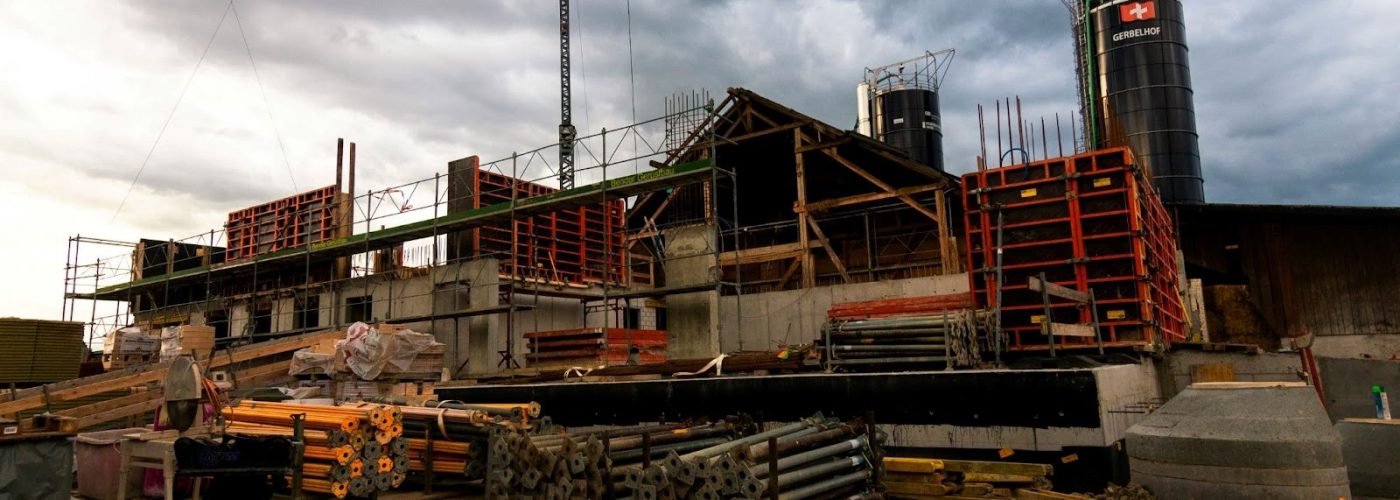Tackling food waste within the construction industry presents a unique set of challenges. As projects ramp up, so too does the scale of potential waste, making it critical for those managing these sites to think creatively about sustainability.
This guide explores seven innovative solutions aimed at reducing food waste on construction projects. From smart ordering systems to educating your crew, each strategy offers a practical approach to minimize waste while fostering a culture of environmental responsibility.
Together, these methods contribute to a greener planet and promote efficiency and community well-being.
7 Solutions for Reducing Food Waste in Construction Projects
Exploring ways to cut down on food waste in construction projects is more important than ever. Here are seven solutions that can make an impact, ensuring sustainability on your site.
1. Implement Dedicated On-Site Composting
Embracing sustainability in construction projects isn’t just about the materials you use or the energy efficiencies you implement; it also extends to how you manage waste. Recent data suggests that 72% of Americans don’t compost at home, so set up a system at your business.
Setting up a dedicated on-site composting system allows organic waste from your project to decompose naturally, turning it into valuable compost for landscaping or garden projects. This initiative reduces landfill contributions and educates your team on sustainable practices.
2. Use Fresh and Healthy Meal Kits
When you’re managing a construction project, ensuring your team has access to nutritious meals can be a logistical challenge, yet it’s crucial for maintaining energy levels and productivity. A smart solution is to use fresh and healthy meal kits like the ones from HelloFresh.
Studies show that providing well-balanced meals can improve worker satisfaction and job performance by up to 25%. These meal kits offer precisely portioned ingredients, reducing food waste significantly. By streamlining meal preparation in this way, you not only support the health of your team but also contribute toward sustainable food consumption practices on-site.
3. Organize a Better System of Food Ordering
Efficiency in food ordering is paramount to minimizing waste and ensuring that your construction team has the nourishment they need without excess. Here are three simple and effective ways employers in the construction industry can create a better system for food ordering:
- Implement a pre-ordering system where workers can select their meals ahead of time.
- Utilize technology such as mobile apps to streamline the ordering process.
- Foster partnerships with local caterers that offer flexible meal options.
Adopting these strategies not only curbs waste but also contributes to worker satisfaction by providing them with choices that meet their dietary needs and preferences.
4. Donate Excess Non-perishable Foods
In tackling food waste on construction sites, one effective strategy is to donate excess non-perishable foods. About 120 billion pounds of food is thrown away every year, which is about 40% of the entire US food supply. This staggering statistic highlights the importance of redirecting surplus food to those in need rather than discarding it.
Establishing partnerships with local food banks or shelters can facilitate this process seamlessly. Not only does donating unused items help combat hunger in our communities, but it also promotes a culture of sustainability and responsibility among your team members.
5. Educate Your Crew About Food Waste
Raising awareness among your crew about the importance of reducing food waste is critical for fostering a culture of sustainability on your construction site.
Here’s how employers in the construction industry can effectively educate their team:
- Conduct training sessions that highlight the impact of food waste on the environment.
- Share practical tips for minimizing waste, such as proper storage of leftovers.
- Celebrate successes and set goals as a team to reduce food waste.
By investing time in education and making it an ongoing conversation, you create an empowered workforce that understands their role in reducing food wastage on-site and at home.
6. Invest in Smart Storage Solutions
Proper storage is key to extending the shelf life of food, thereby reducing waste and saving money. Here’s how employers in the construction industry can invest in smart storage solutions:
- Choose refrigeration units that are designed for commercial use.
- Invest in airtight containers for dry goods.
- Explore storage options like vacuum sealers for preserving prepared meals.
Smart storage solutions not only help in cutting down food wastage but also ensure that your team has access to fresh, healthy meals throughout the project.
7. Partner with Local Food Recovery Networks
In an effort to minimize waste and support your local community, partnering with a food recovery network can make a significant difference. There are food recovery networks all across the US and you can find yours at The Food Recovery Network’s website.
These organizations specialize in redistributing surplus food to those in need, ensuring that leftover perishables do not go to waste. Taking this step helps tackle the pressing issue of food insecurity and reinforces your project’s commitment to sustainability and social responsibility.
Reducing Food Waste is an Overall Good thing
As we’ve explored various strategies for reducing food waste in construction, it’s clear that every little effort counts towards creating a more sustainable and efficient industry. Now is the time to take action by implementing these innovative solutions on your projects. Also, you can prefer the Skip Hire Folkestone that helps to reduce the food waste in construction sites.





